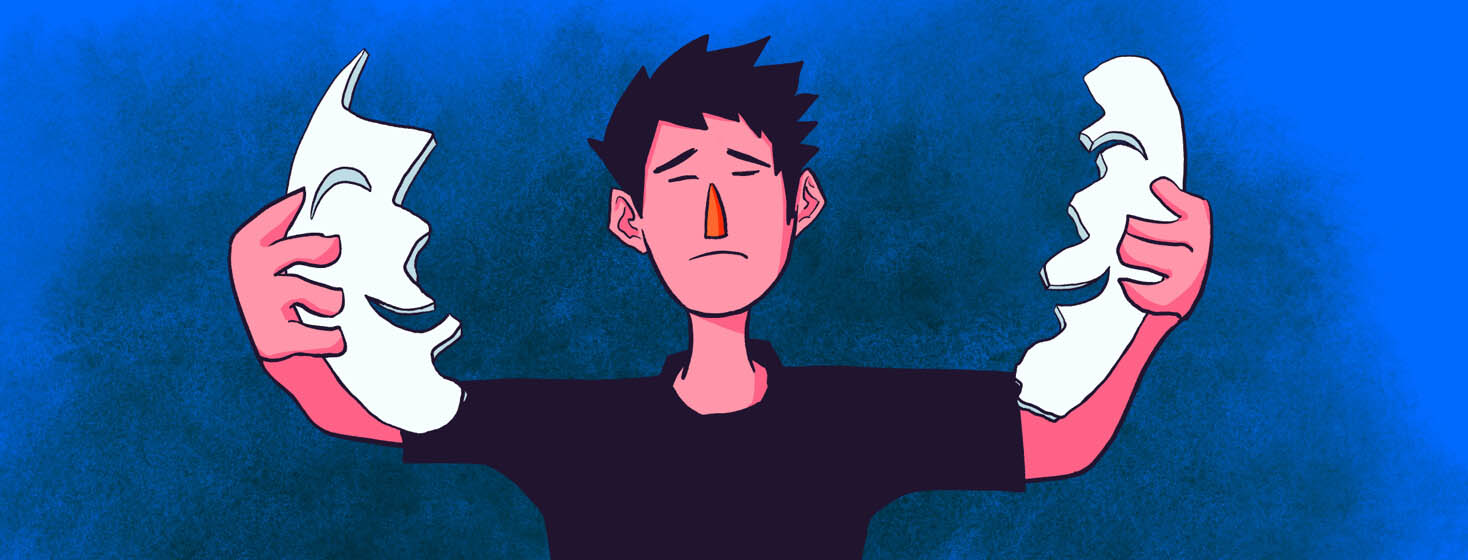My Resting Pain Face
I was indoors at a family party and trying to hold it together. The humidity that day was oppressive, something my joints didn't appreciate. The sky opened up outside, and it poured for the next two hours. My pain level increased bit by bit.
I went from socializing and smiling to sitting stiffly in the corner. I did my best to keep my face from twisting into a grimace, but I probably looked miserable and unapproachable. When it was time to leave, I got into the car, shut the door, and sobbed from the pain. Not to mention the grief of sitting in the car for an hour-long ride home.
Struggling to hide the pain
I repeatedly hear from others living with chronic pain that they've learned to push past the pain. They learn to function as if nothing was wrong - without others even realizing it. And frequently, they talk about the mask they wear, forcing a smile and wearing makeup to hide dark circles. I have also learned to do this, to the point I have 'tricked' many of my acquaintances. And we do this for many different reasons.
But sometimes, I just can't help it. When my pain levels are soaring, it's hard to put on a happy face. Especially in those moments where I'm not talking to someone or doing work, but just taking a moment to sit and rest.
I have seen myself in the background of photos, I know I can seem quite unapproachable. Sometimes, I wish I could wear a sign around my neck that says, "not angry or mean- just in pain" because it's the truth! While I may look angry, anxious, or overall displeased, in reality, I'm just in pain.
My face and body react to how I'm feeling
Aside from my clumsiness, the way that my pain shows itself is through my expressions and body language. It tends to come at some of the worst times- at special gatherings while meeting someone new, or at work. It's during those times I really don't want to share how I'm feeling.
Yes, I can work through a decent amount of pain without showing it. But after a while, it visibly takes a toll on me- just ask the coworkers who sit across from me. I furrow my brow, bite my lip, or look very overwhelmed at times, even if I think I'm coping just fine. Plus, my body language can also become quite closed off.
Finding easy ways to manage my pain
For those times that it's important to make a good impression or when I don't want to give away how I'm feeling, I've learned a few ways to cope physically and mentally.
I have a hard time controlling my body language because joint stiffness can make me hold myself stiffly and in closed-off positions. So when I start to feel myself close off, I do my best to stretch out a little. I try not to cross my arms, but I might still keep them close to my body. Keeping compression gloves in my purse also helps, because I can put those on when I feel like I want to ball my hands into fists.
I also make an effort to frequently unclench my jaw, which helps my face appear less tense as well as improves my TMJ pain (usually). Actively reminding myself to relax muscles in my face and body helps me look less tense and improves my pain a bit.
I'm always kind to myself
But first and foremost, I'm always kind to myself. I don't think having a reaction to the pain is a bad thing- in fact, it's the most natural thing in the world. I'm not hard on myself when I catch myself in a closed-off position or grimace. I just do what I can to loosen up a little and try again.
I also don't feel pressure to try to put on this facade all the time- just when I feel it's best. Working in my own cubicle, taking public transport, or being around others who "get it" are times I don't feel particularly pressured. Anyway, if anyone says anything to me, I just remind myself they might react the same way if they walked a mile in my shoes.

Join the conversation